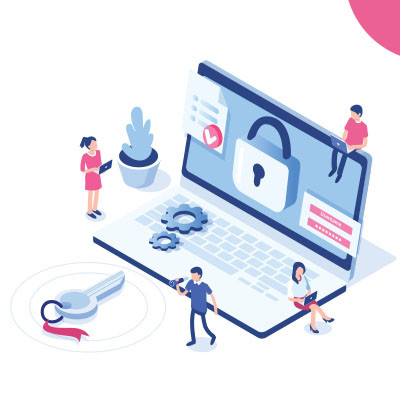Small businesses, like any other organization, need to protect various types of data to ensure the security and privacy of their operations. The specific data that needs protection may vary depending on the nature of the business, industry regulations, and the types of transactions or customer interactions. Today, we thought we would go through some common data types that small businesses typically need to protect.
Customer Information
It’s safe to say that the best way to run afoul of your customers is by playing it fast and loose with their personal information. Data such as names, addresses, phone numbers, and email addresses of your customers have to be protected. This also goes for payment information, including credit card details.
Employee Data
Employee data includes your employees' personal information, like contact details and Social Security numbers. This data needs to be protected like your customer data needs to be. This includes payroll information, bank account details for salary deposits, and other financial data as well.
Financial Records
Speaking of financial data, information like income statements, balance sheets, and tax records all need to be protected for the security of the organization. In many cases, protecting banking information and transaction records must be prioritized.
Intellectual Property and Legal Documents
IP is the information on why your products and services are unique and effective. This includes information on trade secrets and proprietary information and any patents or copyrights your business has. Of course you also need to protect any contracts, agreements, and legal documents related to business operations as it has information that, if stolen, could have major negative implications for your business.
Website and Online Presence
This includes data related to the company's website, including customer login information and any data collected through online forms. A lot of data is shared online nowadays and you have to be mindful that any data you take in from the web is at risk for theft.
Health and Safety Records
Employee health information is very attractive to scammers and hackers. Any records related to employee health and safety have to be secured.
IT Information
The technology your business uses holds a lot of sensitive information, even if you may not know it. Access credentials, network configurations, and other information related to the company's IT infrastructure can be useful to hackers looking to infiltrate your business.
It's crucial for small businesses to implement security measures such as encryption, access controls, regular backups, and employee training to safeguard the sensitive data they handle. Additionally, compliance with relevant data protection laws, such as GDPR, HIPAA, or others depending on the industry, is not just mandatory, it has to be prioritized when setting up a comprehensive data security strategy. Regular security assessments and updates to security protocols are also recommended to address emerging threats and vulnerabilities.
At Coleman Technologies, our knowledgeable consultants and professional technicians can help you with your end-to-end data security strategy and help you support all of the resources needed to make it work. Give us a call at (604) 513-9428 to learn more.




